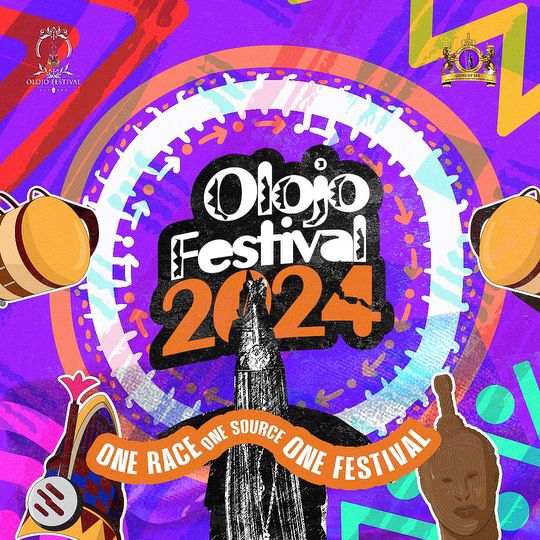Efficacy of Festivals in Africa: A Focus on the Olojo Festival of Ile-Ife, Nigeria
Efficacy of Festivals in Africa: A Focus on the Olojo Festival of Ile-Ife, Nigeria
Festivals hold a significant place in African society, not only as cultural celebrations but also as essential components of community cohesion, economic growth, and heritage preservation. Among these festivals, the Olojo Festival in Ile-Ife, Nigeria, stands out as one of the oldest and most revered in Yoruba tradition. It is a powerful example of how festivals contribute to the social, spiritual, and economic life of African communities.
1. Cultural Preservation and Identity
Festivals like Olojo serve as a medium for preserving cultural heritage, which is crucial in maintaining the identity of a people. In Africa, where oral traditions and customs are central to history, festivals are one of the primary avenues through which younger generations learn about their ancestry and traditions. The Olojo Festival commemorates Ogun, the god of iron, and the dawn of creation according to Yoruba cosmology. This helps keep the Yoruba culture alive, fostering a deep sense of identity and pride among its people.
2. Spiritual Significance
Olojo, like many African festivals, has profound spiritual connotations. For the Yoruba, it is a time to reconnect with the divine and ancestral spirits. The Ooni of Ife, the spiritual and traditional leader of the Yoruba people, plays a pivotal role in this festival, symbolizing the link between the gods and the people. The ritual prayers and processions help strengthen the spiritual connection of the community, reinforcing their belief systems and invoking divine favor and blessings for the coming year.
3. Tourism and Economic Growth
Festivals across Africa, including Olojo, attract both local and international tourists. The influx of visitors during the festival boosts local economies, providing business opportunities for artisans, hoteliers, and vendors. In addition, cultural tourism helps promote local crafts, music, and cuisine, further preserving the cultural heritage of the region while creating jobs. The Olojo Festival, with its unique cultural displays, is one such example of tourism that fosters economic resilience and growth in Ile-Ife and its surrounding areas.
4. Social Cohesion
Festivals serve as moments of unity and community bonding. Olojo, for instance, brings together Yoruba people from all walks of life, and even from the diaspora, to celebrate a shared history. This sense of communal participation fosters social cohesion, reducing conflict and encouraging collaboration. In a society where community ties are essential, festivals play a pivotal role in maintaining peace and mutual respect.
5. Educational Value
For younger generations, festivals provide a platform for experiential learning. They observe and participate in the rituals, gaining knowledge about their roots, history, and values. The Olojo Festival, with its detailed ceremonies, costumes, and performances, serves as a living history lesson for children and youth, ensuring that cultural knowledge is passed down from one generation to the next.
6. Promotion of Traditional Arts and Crafts
The Olojo Festival is also a time when local artists and craftsmen can display their talents and creations. Traditional textiles, carvings, beadwork, and other forms of art are showcased during the celebrations. This not only preserves ancient techniques but also promotes innovation within traditional frameworks, ensuring that these crafts continue to thrive in the modern era.
7. Fostering National and Global Recognition
African festivals, particularly Olojo, bring international attention to African traditions and history. This not only enriches the global understanding of Africa’s cultural diversity but also challenges stereotypes and misconceptions about the continent. Through these festivals, Africa’s rich heritage and contributions to world civilization are highlighted, leading to increased cultural diplomacy and fostering global partnerships.
Conclusion
The Olojo Festival in Ile-Ife, Nigeria, is much more than a cultural event. It encapsulates the multifaceted benefits of festivals in Africa, from preserving heritage and fostering social unity to boosting the economy and promoting traditional arts. In a rapidly changing world, such festivals serve as anchors, grounding communities in their history while opening doors for future development and global recognition.
Share this content:
